Postgres Expert v9
Postgres Expert analyzes the configuration of servers that are registered with the Enterprise Manager, and provides advice about:
Postgres Expert is an advisory utility; after analyzing the selected servers, Postgres Expert produces a report containing analysis of potential performance and security issues, along with suggestions for addressing each such issue.
To use the Postgres Expert wizard select the Postgres Expert option from the Management menu in the PEM client. When the wizard's Welcome window opens; click Next to continue:
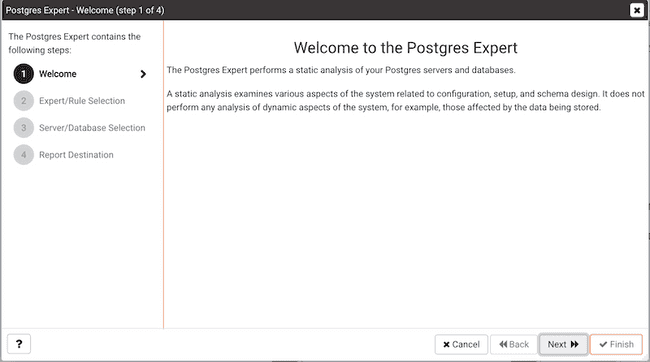
The wizard displays a tree control that allows you to choose the Experts and Rules with which Postgres Expert will evaluate the specified server or database.
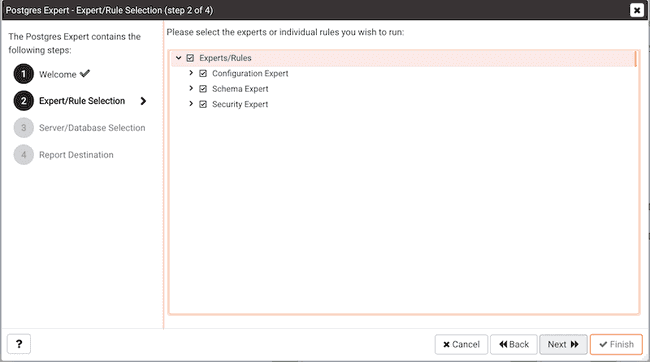
The tree control categorizes the Rules under three Expert headings:
- Select from the
Configuration Expertrules to analyze the parameter settings of the server or operating system to find any adjustments that might improve system performance.- Select from the
Schema Expertrules to analyze schema objects (locating missing primary keys, foreign keys without indexes, etc).- Select from the
Security Expertrules to review the system to find security vulnerabilities.
Use the checkbox to the left of an expert or rule to indicate that the Postgres Expert should analyze the configuration of the selected servers for any best practice deviations related to the selected item.
- Use the checkbox next to
Experts/Rulesto select or deselect all of the items listed in the tree control.- Use the checkbox next to the name of an expert to select or deselect all of the configuration items listed under that node of the tree control.
- Use the checkbox next to a rule to select or deselect the rule for inclusion in the Postgres Expert report.
After making your selections, click Next to continue to the Server/Databases tree control.
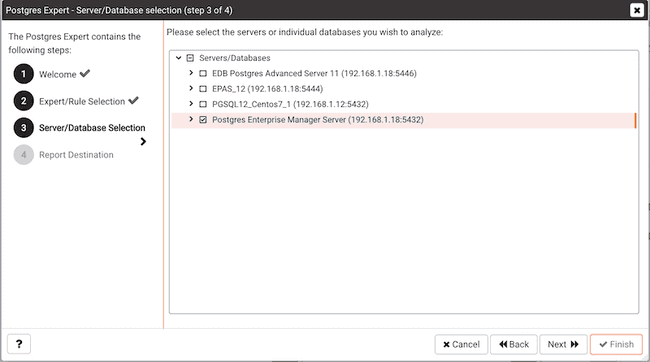
If you select multiple servers or databases, the resulting report will contain a separate analysis of each target. Select or de-select the servers and databases that you would like Postgres Expert to analyze, and select Next to continue.
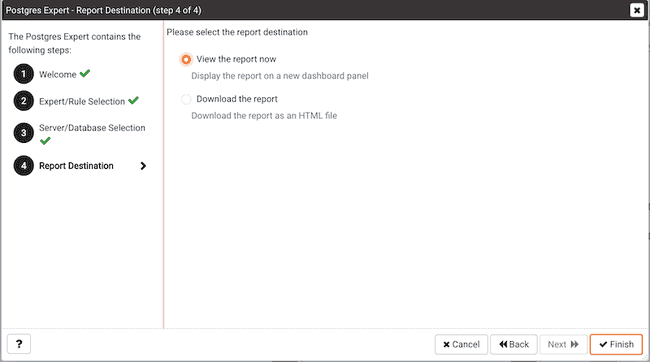
You can select the default option and click Finish to immediately view an onscreen report from Postgres Expert, or check the box next to Download the report to save a copy of the report to an HTML file for later use. If you choose to download the report, the report will be saved in your default downloads directory.
Reviewing the Postgres Expert Report
If you've elected to review the report immediately, the PEM client will display the report on the Postgres Expert tab.
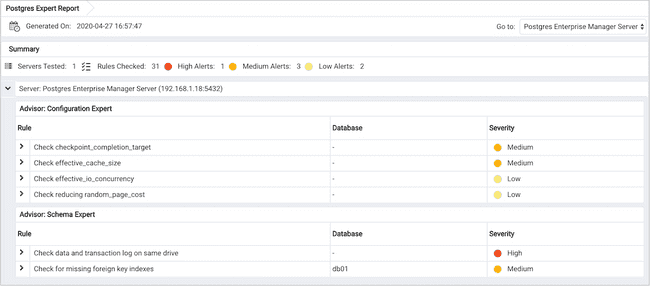
A report summary in the upper-left corner of the Postgres Expert Report lists statistics about the analysis, including the number of servers analyzed, the number of rules tested, and the number of alerts raised in each severity category.
If your report contains recommendations for more than one server, you can use the Jump to selector in the upper-right corner of the report as a navigation tool; select a server from the list to move to the portion of the report containing information for the selected server.
For each server analyzed, the Postgres Expert returns recommendations from the Configuration Expert, the Schema Expert, and the Security Expert. Each expert returns a list of rules that raised an alert, the database that the rule pertains to, and the severity level of the alert. Click on a rule name to view detailed information about the selected rule:
| Section Heading | Contains |
| Trigger | A description of the rule that raised the alert. |
| Recommended Value | The value to which Postgres Expert recommends setting the selected parameter. |
| Description | Information and advice about the parameter that caused the alert. |
| Current Values | The current value(s) of the parameter(s). |
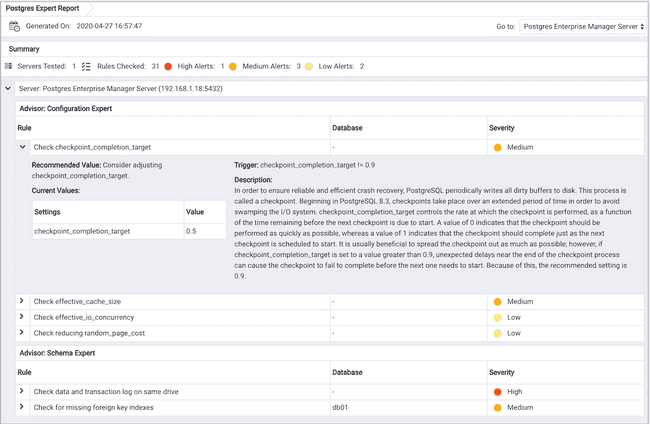
For more information about each rule checked by the Postgres Expert, see:
pe_schema_config_expert_recommendations pe_security_expert_recommendations pe_configuration_expert_recommendations